Virtual Reality ( VR ) is revolutionizing Cognitive Behavioral Therapy ( CBT ) by providing immersive, controlled environments for treating phobias, OCD, PTSD, and other mental health conditions. Through realistic simulations, patients can safely confront their fears, practice coping strategies, and reshape unhelpful or negative thought patterns, making therapy more effective and accessible.
Cognitive Behavioral Therapy (CBT) is a popular and proven type of therapy that helps people identify and change negative thoughts and behaviors. It is based on the idea that our thoughts, feelings, and actions are connected. By changing unhelpful thoughts and behaviors, individuals can enhance their emotional well-being.
Exposure Therapy is a technique within Cognitive Behavioral Therapy (CBT) that helps people face and reduce their fear or anxiety linked to specific triggers. It involves gradually exposing patients to the feared object, situation, or memory in a safe and controlled setting. Over time, this repeated exposure helps desensitize individuals to their fears, reduces avoidance behaviors, and shows them that their anxiety will decrease naturally.
 Why we recommend virtual reality technology for exposure therapy ?
Why we recommend virtual reality technology for exposure therapy ?Virtual reality , has two distinct applications: entertainment and health . It’s important to note that entertainment games do not have therapeutic properties. In therapeutic settings, software and applications are specifically developed for health purposes by scientific institutions. Today, the use of Virtual Reality ( VR ) is rapidly growing as an innovative and effective tool in therapy and health care, and it is approved by the U.S. Food and Drug Administration (FDA). VR technologies provide new and precise opportunities for treatment. The application of Virtual Reality facilitates the processes of therapy, learning, and enhancement of cognitive functions. In exposure therapy , virtual reality can create a completely safe environment for individuals to confront their fears and negative thoughts. It allows for the simulation of experiences, which can speed up the therapy process.
 How virtual reality can help exposure therapy
How virtual reality can help exposure therapyVirtual reality is transforming exposure therapy and cognitive-behavioral therapy (CBT) by providing a safe space for individuals to confront their fears and anxieties. Through immersive simulations, patients can gradually face situations that trigger their phobias, such as heights, flying, or public speaking, without the risks of real life. Overall, VR has proven to be an effective and convenient therapeutic tool, making exposure therapy more accessible and impactful. It offers more opportunities for learning, skill development, decreased fear, and support in processing past experiences.
 Which disorders are affected by our VR solutions?
Which disorders are affected by our VR solutions?This innovative approach is especially effective for treating conditions like phobias, obsessive-compulsive disorder ( OCD ), post-traumatic stress disorder ( PTSD ), anxiety disorders, Anger, Addiction, Relaxation and Stress Management.
OCD ( Obsessive Compulsive Behaviors ): Virtual Reality simulate real-life situations that individuals with OCD encounter and people can Manage symptoms by practicing and building skills through engaging VR training.
Addiction: in the VR environment, we will face the client with his addictive situation, and then the client will learn how to face these situations.
Phobia: in the VR exposure therapy , we will stimulate real situations in a safe place for facing one's fears. These phobias are: insect Phobia, Animal Phobia, Confined spaces, Agoraphobia, Social Phobia, Heights Phobia, Doctor and Needle Phobia, and Flying Phobia.
PTSD: VR recreates traumatic events in a controlled manner, helping patients process and reframe their experiences. This method reduces the emotional intensity of memories and promotes healing.
Anger: With real-life VR scenarios learn how to control anger Caused by Bullying, job loss, traffic, and other triggers that provoke feelings of anger.
Relaxation: Over 100,000 VR Environments for Relaxation and Stress Management such as Travel therapy, Art therapy, Breathing techniques, Muscle relaxation, Mindfulness Meditations, Binaural beats and music, AI-Generative safe place.
 Who can benefit from using our VR solution for Cognitive Behavioral Therapy (CBT)?
Who can benefit from using our VR solution for Cognitive Behavioral Therapy (CBT)?Mental health counselors and psychotherapists can integrate VR solutions into their private practices, providing a dynamic tool that enhances traditional therapeutic methods and empowers practitioners to facilitate effective treatment tailored to each individual’s needs.
Mental health organizations can leverage VR therapy systems in clinics, hospitals, and medical centers, enhancing their treatment offerings with immersive, effective tools.
Universities and colleges can educate future mental health professionals while also providing essential support for students' well-being.
HR departments can integrate VR wellness programs that empower employees with self-guided VR training, promoting mental health initiatives within the workplace.
This integration of VR therapy helps many people and organizations, creating health ier environments and improving therapeutic practices.
Experience our modern virtual reality solutions with Meta Quest, PICO, and HTC standalone headsets. For more information and to purchase our VR solutions for phobias, OCD, and addiction, please contact us.

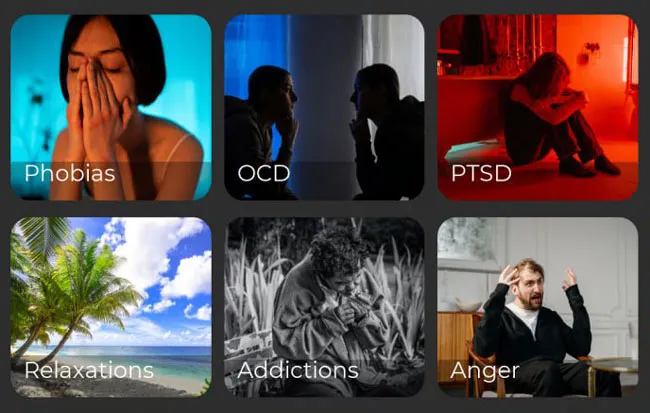
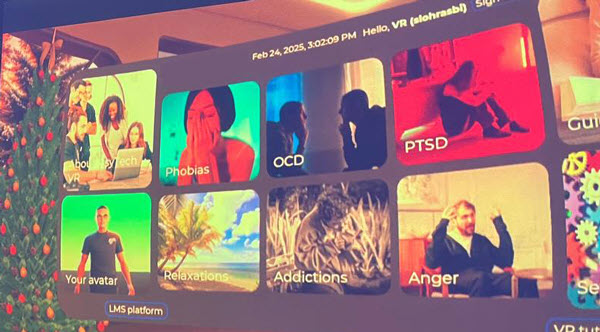
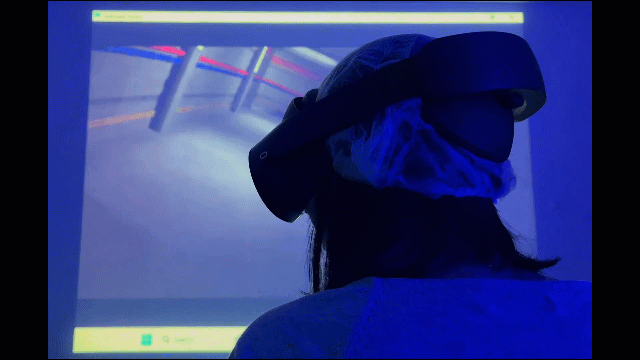
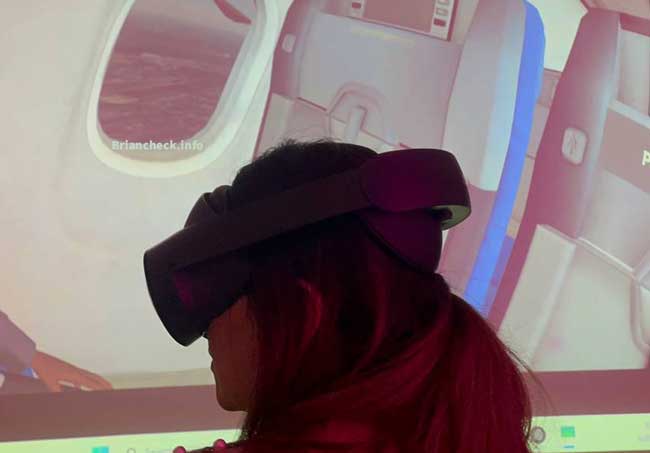
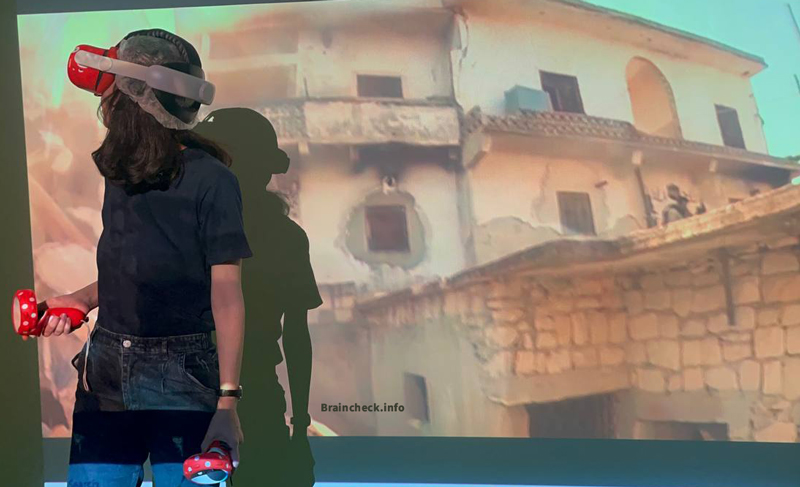
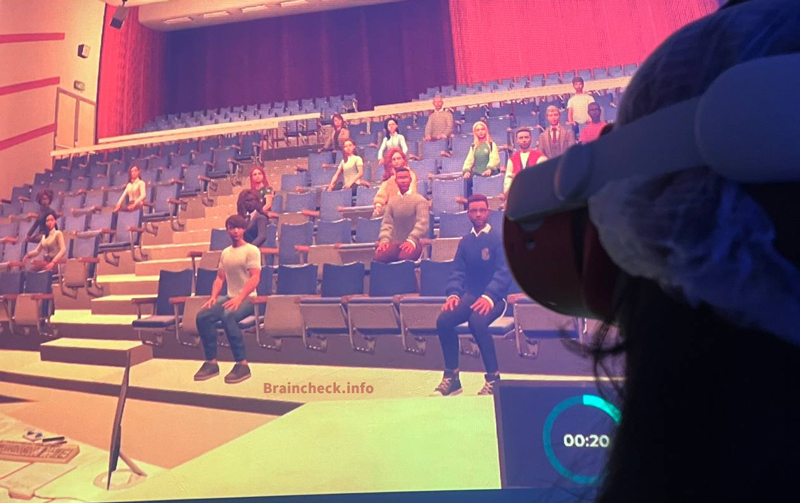
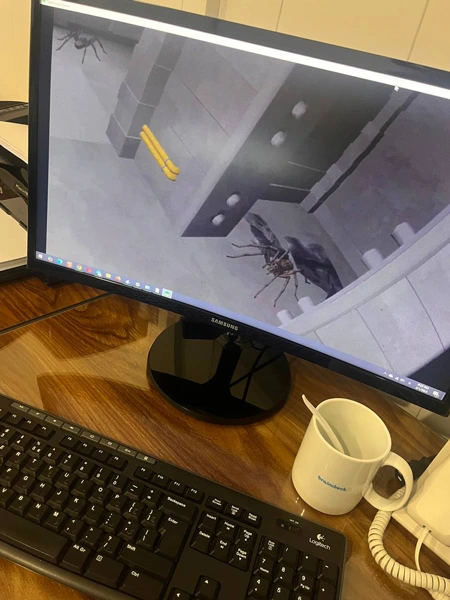

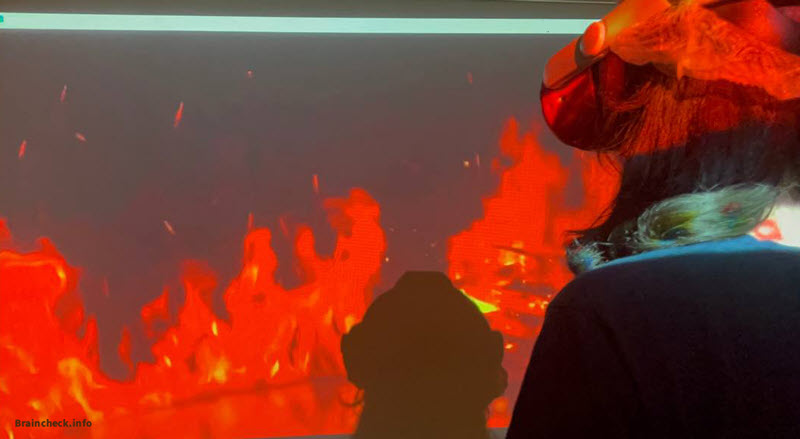
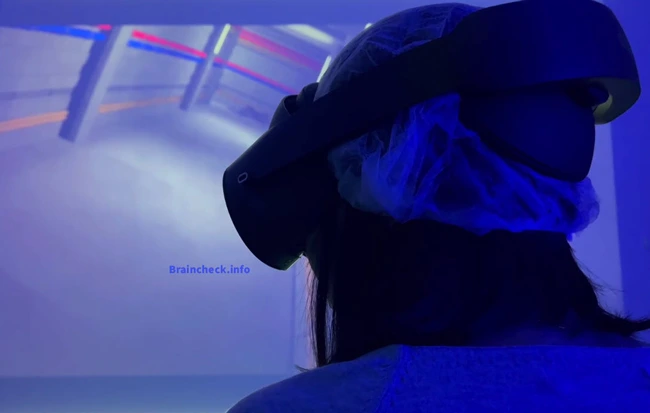
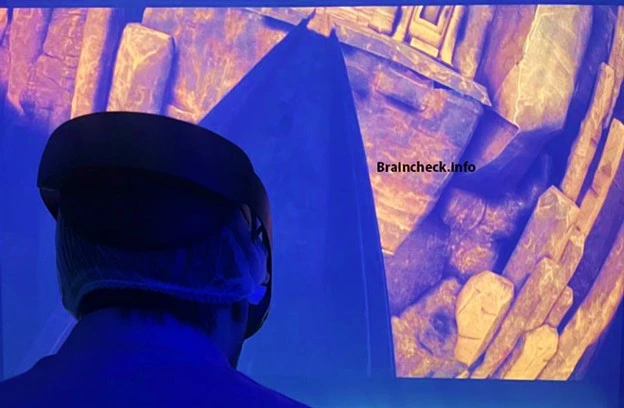
0 Comments